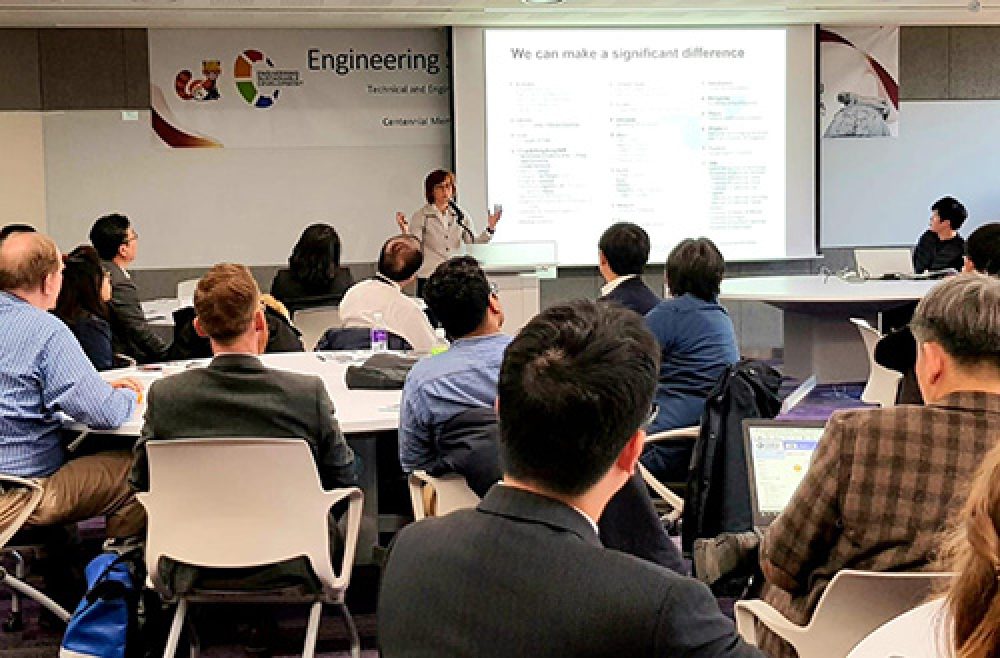APRU joined engineers, scientists, and policy-makers at a gathering at the Korea University in Seoul to discuss technical and engineering challenges of addressing the 2030 Agenda for Sustainable Development and the 17 Sustainable Development Goals (SDGs).
At the Conference on Engineering Sustainable Development 2019 held December 12-13, APRU’s Director of Policy & Programs Christina Schönleber, outlined some of APRU’s collaborative programs in key areas of focus, such as Shaping Higher Education in the Asia Pacific; Creating Global Student Leaders; and Asia-Pacific Challenges.
Schönleber conveyed her excitement over APRU’s newest program, the Sustainable Waste Management Program, which was set up by Professor Yong Sik Ok, the chair of the conference and a professor in the Korea University’s Division of Environmental Science and Ecological Engineering.
“Through the Sustainable Waste Management Program, APRU aims to support the development of an effective sustainable management agenda for biological waste and remediation of soil, water, and air in the local context, to satisfy environmental compatibility, financial feasibility, and social needs,” Schönleber said.
“I very much look forward to working with Professor Ok and many of you here today to support governments and policy-makers with new insights derived from this new APRU program,” she added.
Schönleber’s presentation at the Conference on Engineering Sustainable Development was based on the realization that humankind is facing an unprecedented crisis due to the crossing of a number of planetary boundaries that are essential for regulating the earth system.
She cited a recent declaration by more than 11,000 scientists from 153 countries that warned that a climate emergency could bring untold suffering if urgent action is not taken to conserve the biosphere.
Schönleber went on to outline why it is universities’ responsibility to engage externally and collaboratively, acting across borders and regions to address existential global challenges.
She pointed out that APRU, with its unique network of 51 leading research universities from 18 economies around the Pacific with more than two million students and more than 200,000 faculty, has made a start on generating will and implementing viable solutions at scale by offering a neutral platform to support cross-border, trans-Pacific collaborations.
“We are the first generation to know that we are undermining the ability of the Earth system to support human development, and this profound insight is an enormous privilege, because it means that we are the first generation to know we need to change,” Schönleber said.
“The APRU experience shows that universities can make a real difference if acting together across boundaries of nation, culture, discipline, and gender,” she added.

